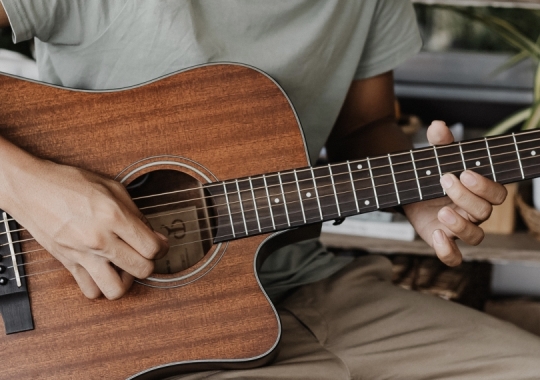
How to improve my guitar playing?
-
Start with the basics: Before you dive into more advanced playing, make sure you have a solid understanding of the basics, such as chords, strumming patterns, and scales.
-
Practice regularly: Consistent practice is key to improving your skills. Aim to practice at least 15-30 minutes every day, but don't burn yourself out, it's better to have shorter, consistent sessions than long and infrequent ones.
-
Set achievable goals: Identify what you want to achieve and set specific, achievable goals. This could be anything from learning a new song to mastering a particular technique.
-
Get comfortable with chords: The more chords you know, the more options you have when it comes to playing songs. Start by learning a few basic chords, then gradually expand your repertoire as you progress.
-
Study different genres: Playing different styles of music will help you develop a diverse range of skills and techniques, so make sure to study blues, classical, rock, folk, and other genres.
-
Use different resources: Take advantage of all the resources available to you, such as online lessons, instructional books, and videos. Experiment with different learning styles to see what works best for you.
-
Use a metronome: A metronome is a device that provides a constant beat, and it's a great tool for helping you develop your sense of timing.
-
Play with other musicians: Jamming with other musicians is a fun and effective way to improve your skills. It allows you to learn from others and gain new perspectives on your playing.
-
Experiment with different techniques: Don't be afraid to experiment with different techniques, such as alternate picking, fingerpicking, and sweep picking. This will help you to expand your musical vocabulary and develop your own unique style.
-
Focus on sound quality: Pay attention to the sound quality of your playing. This includes tone, dynamics, and phrasing. These elements are just as important as technical proficiency when it comes to playing the guitar.
So how to improve on your guitar playing? It all starts with you and how much you want to get better!
If you feel that having some guidance would speed up the process, we welcome you to arrange a trial with our experienced guitar teachers who'll share everything you need to know. Book here.



